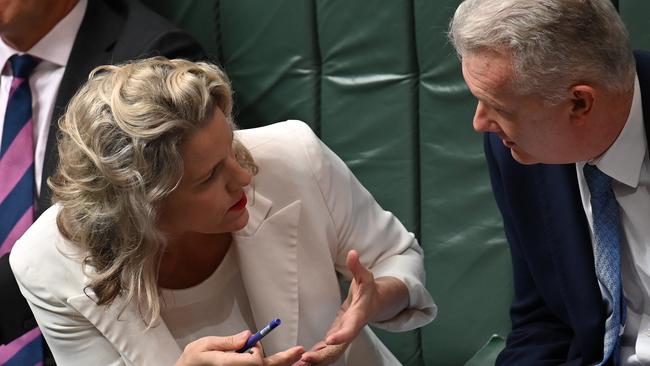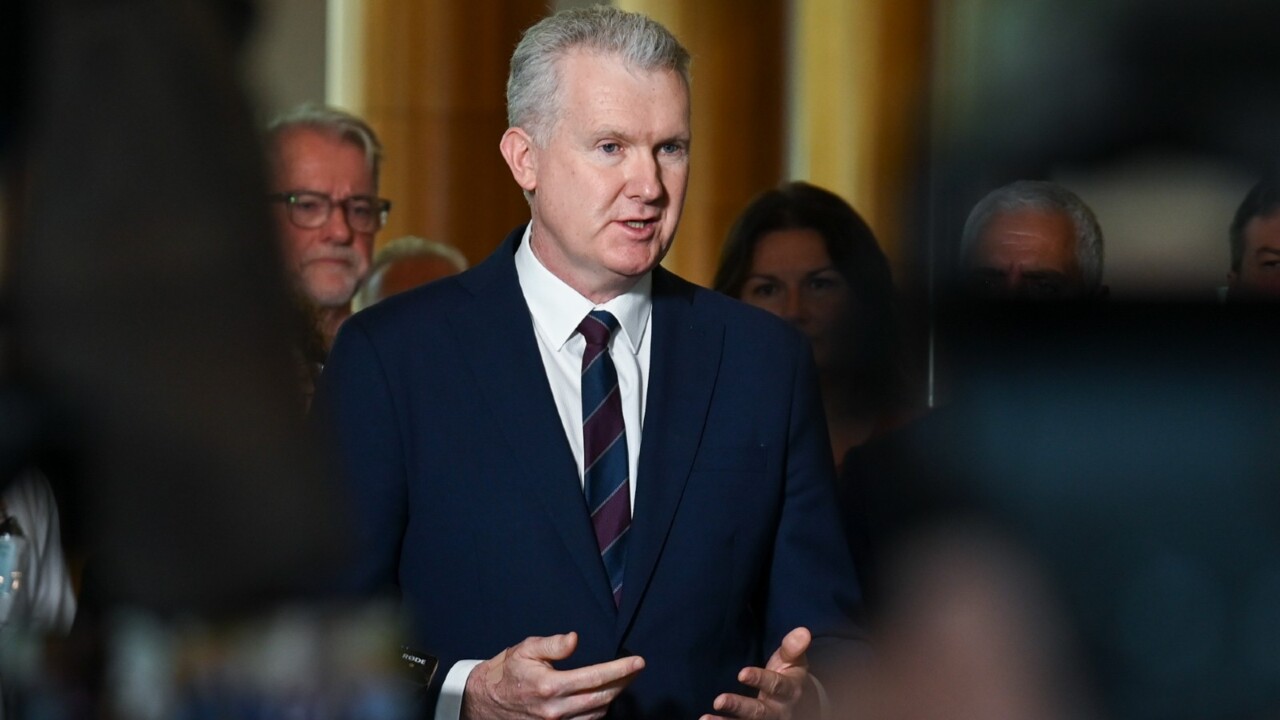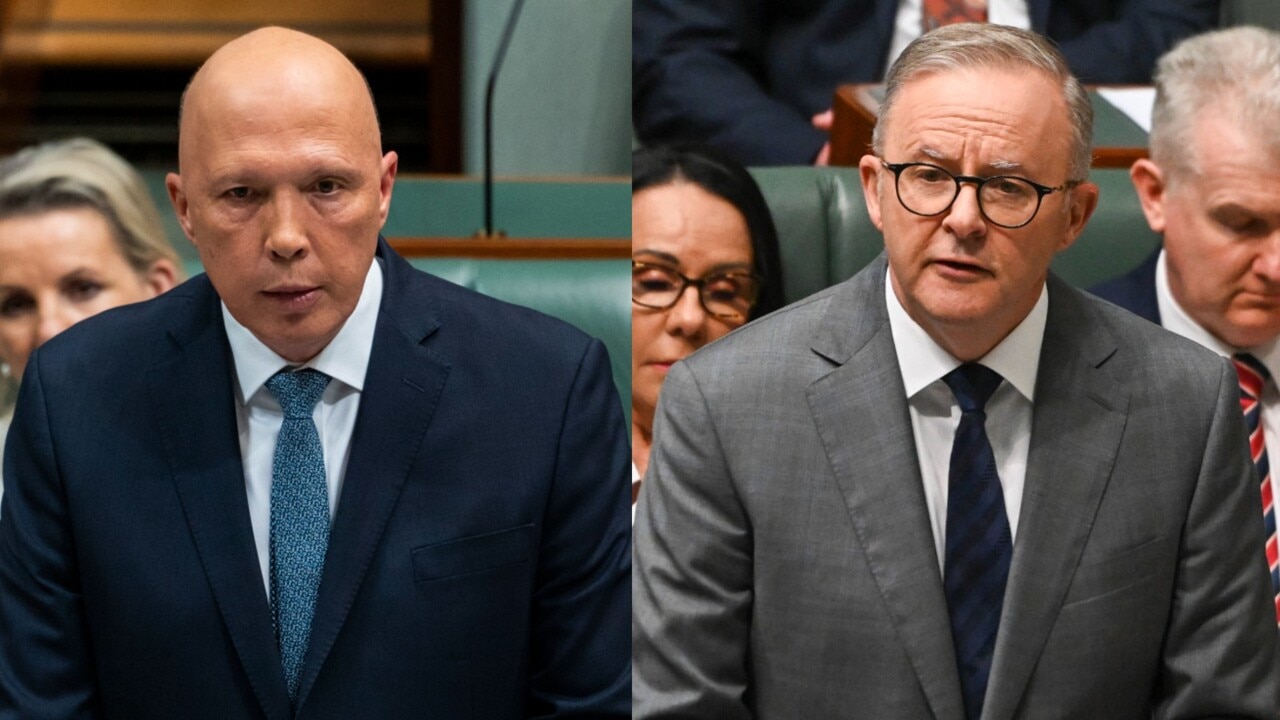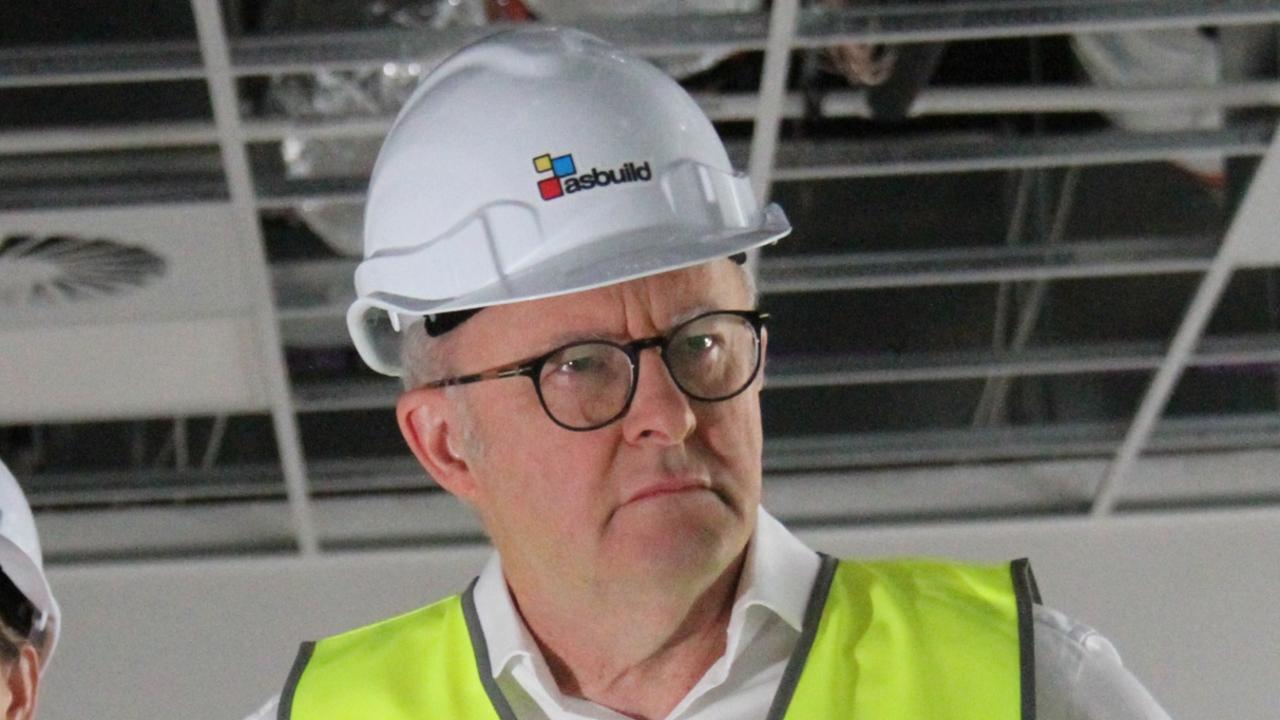
Three sets of numbers define the scale of the political problem facing the Albanese government.
And they’re all going the wrong way.
Newly minted ministers Clare O’Neil and Tony Burke are enjoying a baptism of fire in their new portfolios of housing and home affairs. And both policy areas pose grave risk for the Albanese government as it moves to a pre-election campaign footing.
Albanese has sought to neutralise one and make a virtue of the other, yet the government has overseen persistent failure in both.
O’Neil might be thankful she doesn’t have to deal with the continuing fallout of NZYQ – a legacy of her time in home affairs.
The Australian reveals that a quarter of all immigration detainees who were released because of the bungled High Court case under the watch of O'Neil's junior minister Andrew Giles have reoffended in the community.
This is Burke’s problem now. While he is in Bali talking to Australia’s regional neighbours about people-smuggling and counter-terrorism, the detainee problem inside Australia’s borders grows.
He dismisses the claim he has too much on his plate with the half-dozen portfolios Albanese has given him to manage, but the recidivism rate of these offenders should warrant his full attention.
Having lost the operational intelligence and law enforcement elements of national security to the Attorney-General Mark Dreyfus, Burke retains policy control over domestic security. This includes community safety.

And it will take more than zealous parliamentary oratory to solve the problem.
Not the O’Neil should be thanking the Prime Minister for her sideways move into housing just yet. On Tuesday, the Australian Bureau of Statistics released the June numbers for dwelling approvals nationally.
The numbers speak for themselves: the lowest level of dwelling approvals for the 2023-24 financial year since 2011.
O’Neil’s task of delivering on Albanese’s commitment to build some 240,000 new homes a year – to meet the 1.2 million new houses target over five years – has just become demonstrably more illusionary.
On day one, O’Neil said the government stood by the target, but on these numbers it will fall short by 400,000 homes.
Opposition housing spokesman Michael Sukkar makes the point that O’Neil is now staring at the problem she helped create as home affairs minister, having overseen record net overseas migration numbers.
The third set of numbers that might add to the bad week the government is already facing will be Wednesday’s inflation numbers.

Few economists expect them to show anything but an upward trend. Just how much may well determine the outcome of the central bank’s decision next week on interest rates.
The markets, however, are factoring in a one in four chance of a rate rise.
If it comes, this will be the rate rise from which Albanese and Jim Chalmers cannot hide.
Chalmers did his best on Sunday to hide his jawboning of the RBA when he urged the Reserve Bank’s board to look through these numbers until his energy subsidies had worked their way through the headline numbers.
There is little chance of that, as governor Michele Bullock has already indicated.
The counter-narrative that the federal Treasurer has been trying to establish from early on, that it is the central bank rather than the Labor government’s spending that will be to blame if rates do go up, was always at risk of running out of currency at some stage.
It is unlikely that mortgage holders are going to see it that way come next week, if Bullock were to pull the trigger.



